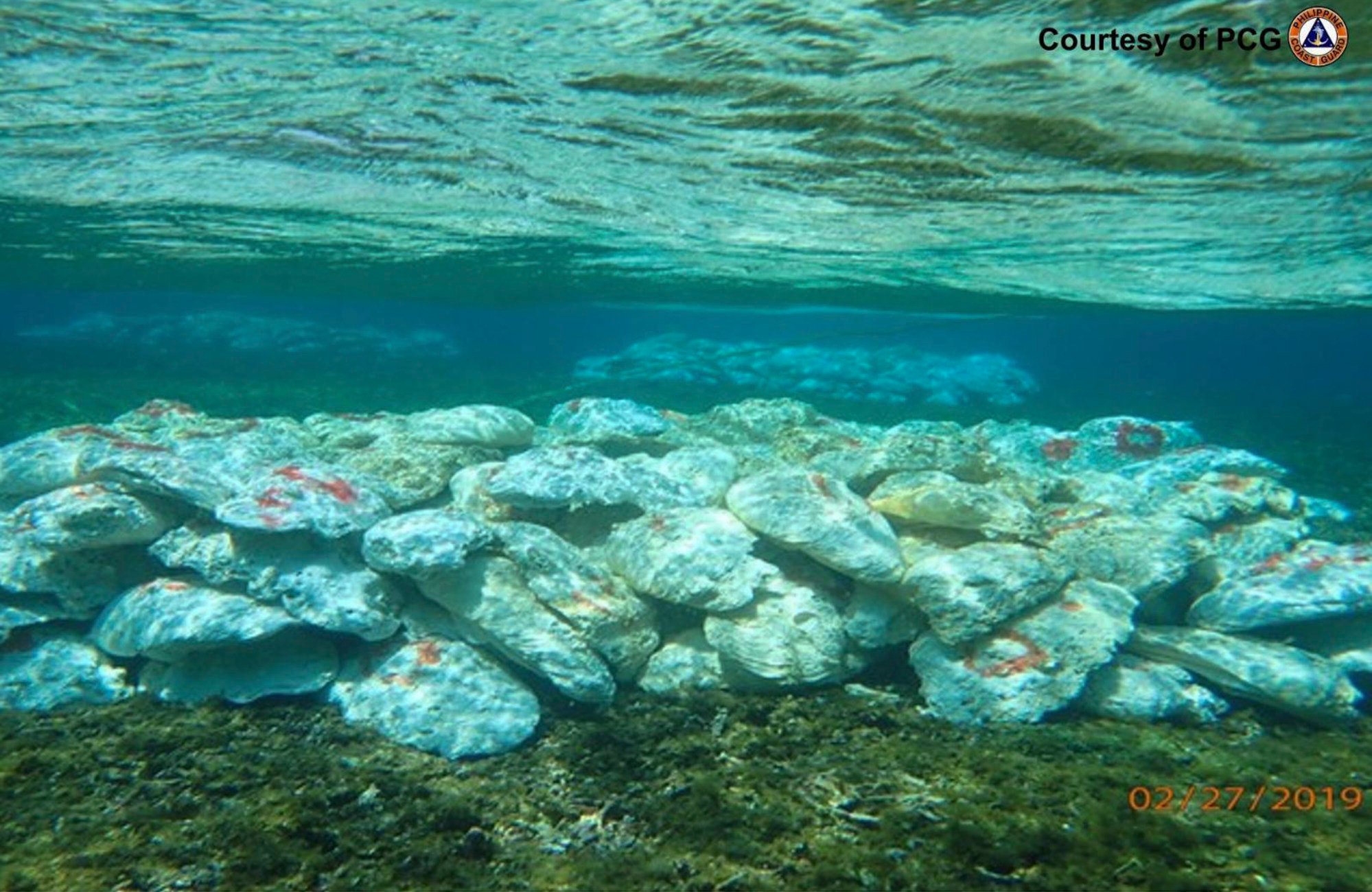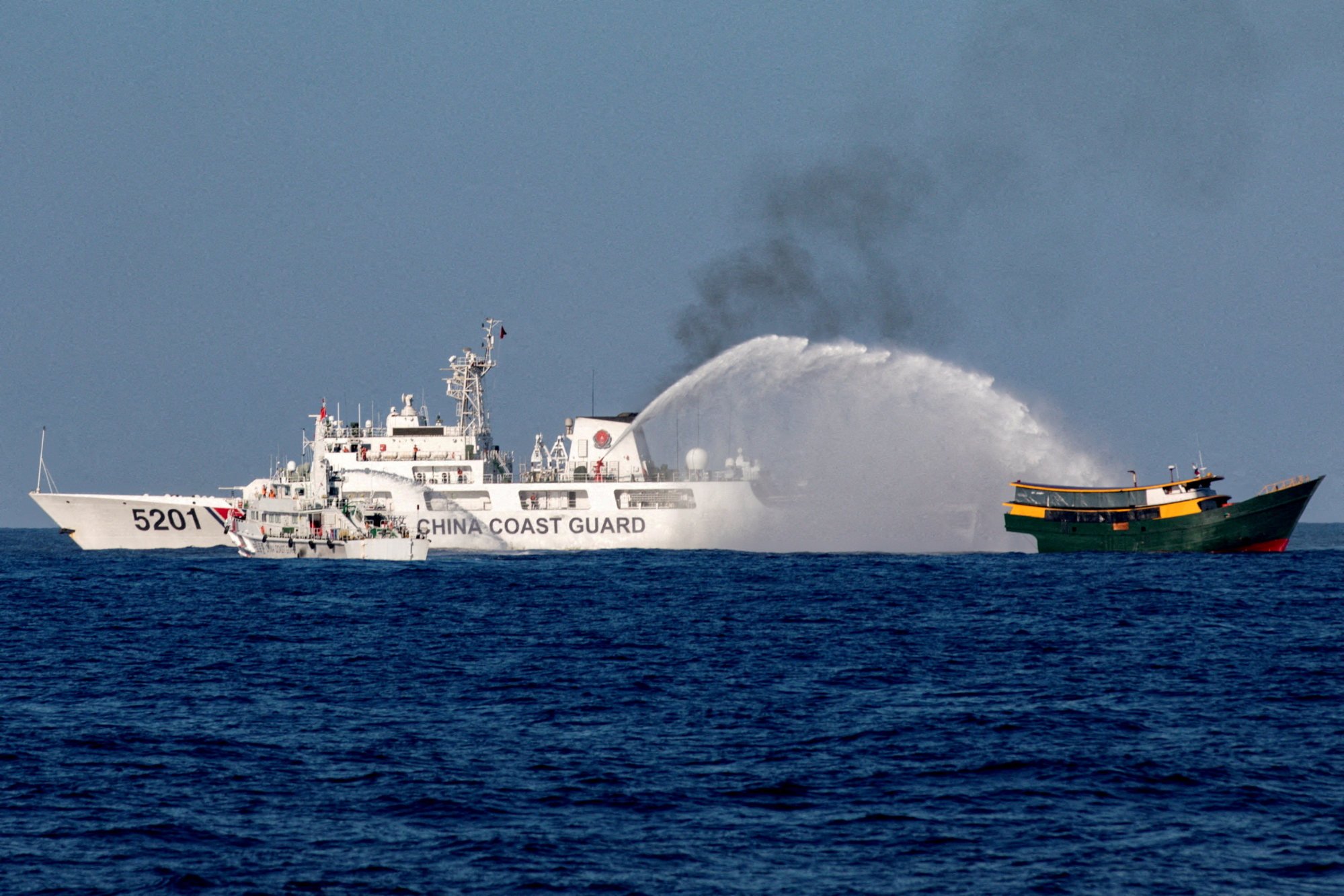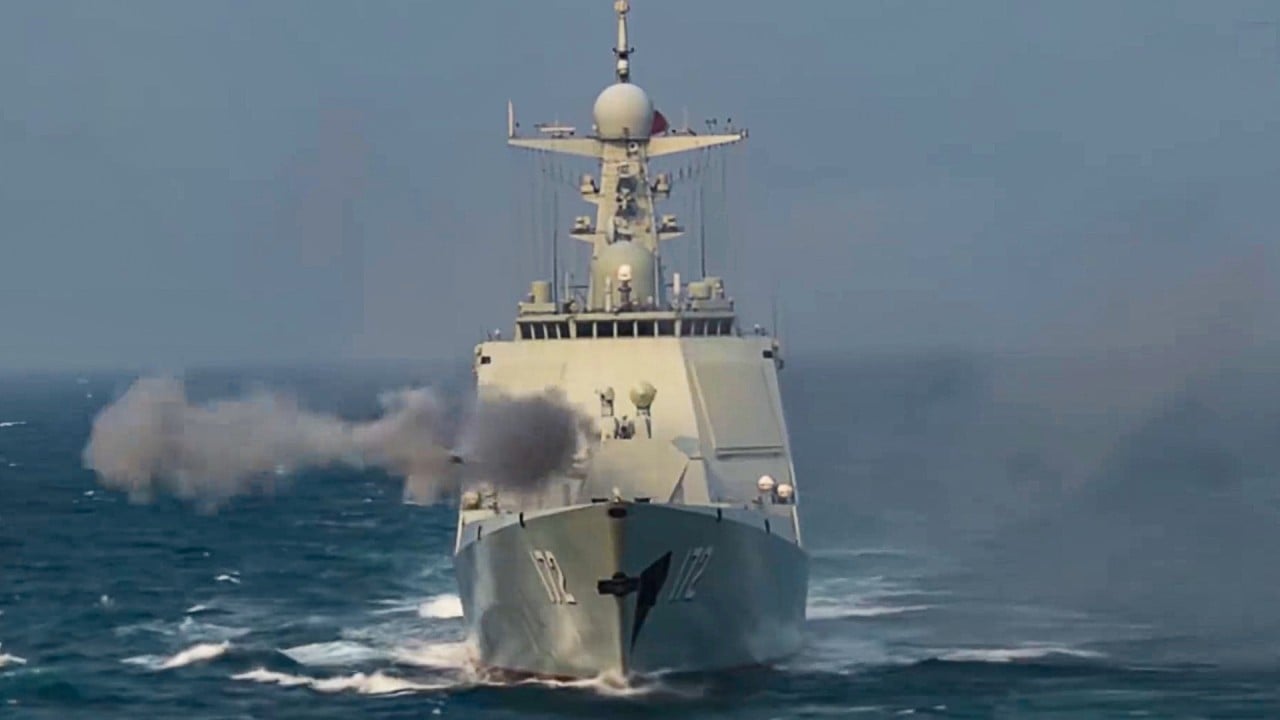Philippine Navy spokesman Commodore Roy Trinidad told reporters on Wednesday that China’s move – set to take effect on June 15 – was “unacceptable” and Manila had contingency plans to counter its actions.
“Not only the Philippine Navy but the entire government and nation will not allow this arrest, based on the pronouncement of our commander-in-chief that this is totally unacceptable,” Trinidad warned, referring to a directive by President Ferdinand Marcos Jnr. He did not elaborate on what the contingency plans might be.
On Monday , the Philippines called on China to let international investigators examine Scarborough Shoal after it accused Beijing of damaging coral reefs in the area as part of reclamation plans.
In 2012, China seized control of the Scarborough Shoal, a traditional fishing ground within the 200-nautical-mile exclusive economic zone of the Philippines, after a two-month stand-off with the Philippine Navy.

Following a meeting of the Senate Committee on National Defence and Security, Peace, Unification and Reconciliation on Wednesday, a senior official from the Department of Justice said Manila could file a diplomatic protest against China’s latest coastguard policy.
“Once we confirm that the provisions are indeed a violation of international law including the arbitral award because, for example, that is our exclusive economic zone, they should not arrest our fishermen when they go to Scarborough Shoal. That is their traditional fishing ground … And so we can file a diplomatic protest,” said the department’s Senior State Counsel Fretti Ganchoon.
According to Ganchoon, China could face legal repercussions if it enacts regulations that violate international law or impact other nations.
China claims most of the mineral-rich South China Sea. The region is also claimed by Brunei, Malaysia, the Philippines and Vietnam, and there have been numerous territorial clashes in the area, particularly between Chinese and Philippine vessels.
In recent months, China’s actions in the West Philippine Sea have become increasingly aggressive. The West Philippine Sea is Manila’s term for the section of the South China Sea that defines its maritime territory and includes its exclusive economic zone.

On April 30, the Chinese coastguard fired a water cannon at a Philippine vessel that was distributing fuel and food supplies to Filipino fishermen near Scarborough Shoal.
On March 23, Manila’s regular resupply mission to its outpost on Second Thomas Shoal was disrupted by two Chinese coastguard vessels that fired water cannons at a civilian resupply boat, leaving three sailors injured.
A Chinese coastguard vessel also shattered the windshield of a Philippine resupply boat, the Unaizah May 4, injuring four Filipino sailors while they were on a resupply mission on March 5.
Foreign Secretary Enrique Manalo said at a press briefing on Wednesday that Manila had always sought to manage the dispute in the West Philippine Sea diplomatically but that China was “not helping Manila to do so”.
When asked about the current bilateral ties given the incidents in the South China Sea, Manalo said: “I would say they’re a bit choppy. These actions have been a cause for raising tensions. We’re merely trying to assert our rights. Unfortunately, we’re being hampered in doing so and in my personal belief, this is creating tensions.”
When asked if tensions would worsen, Manalo added: “I don’t think we’re there yet. We have to find a way to manage. But we have to have an understanding on how we can manage our relationship without increasing tensions.
“China is not really helping us. That’s the challenge because of the many incidents that are occurring. But we’re still committed to seeking diplomatic means to manage our tensions.”
Former Senate President Juan Miguel Zubiri said in a radio interview on Sunday that China would only worsen the situation in the region if it were to apprehend “trespassers” in the South China Sea.
“I am appealing to the Chinese government not to force that on us because it would only escalate the tension.”


